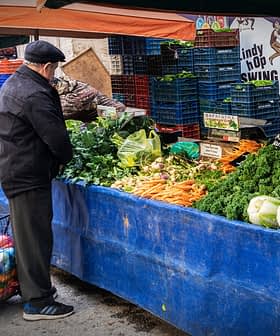Greek Olive Oil Industry Groups Merge
The Greek olive oil packers’ associations, Sevitel and Esvite, officially merged following a unanimous decision by the general assemblies of the members of both organizations.
In September, the two Greek olive oil packers’ associations, Sevitel and Esvite, officially merged into one under Sevitel, the Association of Greek Industries and Packers of Olive Oil, following a unanimous decision by the general assemblies of the members of both organizations. “Given the new reality, it was considered that a single association of olive oil packers would be the best solution in the case of Greece,” according to Panayiotis Karantonis, former director of Esvite, the Greek Association of Olive Oil Processors and Packers, and now deputy director of Sevitel.
A single association representing the olive oil industry in Greece implies a stronger voice to deal with the challenges Greek olive oil is facing both domestically and abroad.
George Economou, director of Sevitel, explained that “substantial differences between the two associations never existed, given that their members were facing the same major problems: on the one hand the relatively small volume of packed branded olive oil consumed domestically, and on the other hand the relatively small share of packed branded Greek olive oil in the world market.”
Established in 1964, according to Economou, Sevitel was the first association that aimed to serve and support the interests of the olive oil industry in Greece. Its members were the largest olive oil packing companies in the country.
Esvite was set up in 1987 to express and promote the interests of Greece’s small and medium-size olive oil packing companies. Karantonis believed “the parallel existence of the two associations would inevitably lead, sooner or later, to a merger in order to have a single institutional entity, strong enough to express, support, and promote the interests of the Greek olive oil industry both on a national and international level.”
Sevitel is a nonprofit organization that represents Greek olive oil processing and packaging companies and cooperatives as well as olive oil exporters. Sevitel informs its members about Greek and EU regulations and standards as well as other issues important to the olive oil industry, such as olive oil quality, production, marketing, and the international market. It organizes events relevant to the olive oil sector and helps finance scientific research about olive oil’s health benefits.
It also runs the Sevitel Organoleptic Lab, which is accredited by the National Accreditation System (ESYD) and recognized by the International Olive Council — one of just three labs with that status in Greece, according to Karantonis. Since 2000, Sevitel has participated in promotional programs partially financed by the European Union and the Greek government, helping to inform the general public about olive oil.
As part of its efforts on behalf of the Greek olive oil industry, Sevitel works with many other Greek and international organizations and offices engaged with industry, commerce, labeling, promotion, and export. For example, Sevitel is a member of the International Olive Council Advisory Committee on Olive Oil and Table Olives, the Olive Oil Section of the Advisory Committee on Oils and Fats of the European Commission, the European Federation of Olive Oil Industries (Fedolive), the North American Olive Oil Association, and the Australian Olive Oil Association. It is also the legal representative of the Greek olive oil industry in the official bodies of Greece and the European Union.
As Karantonis reported, “the first efforts of the two associations to join together go back to 2012.” That year, Sevitel and Esvite decided to work as equal partners to set up the Greek Center for Exports and Promotion of Olive Oil (EKEPE). “EKEPE provided the necessary platform for the two associations to work together more closely, to understand each other better, and above all to realize that they were facing the same problems and challenges.” In 2015, this led to a discussion about merging. The Greek economic crisis that began in 2010 “was also a decisive factor for the merger,” since a merger allowed “the benefit of economies of scale.”
According to Economou, “a single association representing the olive oil industry in Greece implies a stronger voice to deal with the challenges Greek olive oil is facing both domestically and abroad,” where competition from the other olive oil producing countries is fierce. The merger allows the representatives of Greek olive oil packers and exporters to work together more efficiently.









